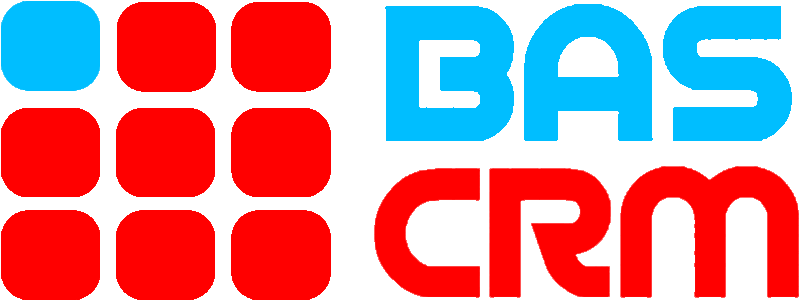Description

vtenext

edge CRM
Comprehensive Overview: vtenext vs edge CRM
vtenext is an innovative Customer Relationship Management (CRM) platform known for integrating process management and CRM functionalities. It stands out as an “edge CRM” due to its flexibility and the ability to be deployed both on the cloud and on-premises, often appealing to businesses looking for advanced CRM solutions with customizable features.
a) Primary Functions and Target Markets
Primary Functions:
- Process Management: vtenext integrates Business Process Management (BPM) into its CRM, allowing users to design, automate, and optimize workflows. This integration ensures that business processes are efficiently managed alongside customer data.
- 360-Degree Customer View: It provides a comprehensive view of customer interactions and history, facilitating improved customer relationship management and engagement.
- Sales Automation: vtenext automates the sales process, from lead capture to conversion, ensuring an efficient sales pipeline.
- Customer Support: Includes support features such as ticket management, service-level agreement (SLA) tracking, and customer service automation.
- Marketing Automation: Offers tools for campaign management, email marketing, and lead nurturing.
- Customization and Integration: Highly customizable, with the ability to integrate with other systems to tailor the CRM to specific business needs.
Target Markets:
- Small to Medium-Sized Enterprises (SMEs): Companies looking for cost-effective and scalable CRM solutions.
- Industries with Complex Processes: Businesses in industries such as manufacturing, finance, and services that require intricate process management.
- Developers and IT Departments: Organizations with strong IT capabilities interested in customizing and integrating CRM solutions into broader IT ecosystems.
b) Market Share and User Base
vtenext is a niche player in the CRM market. While it does not hold the majority market share compared to giants like Salesforce or Microsoft Dynamics 365, vtenext has a dedicated user base, particularly in Europe and among industries needing complex process integration within their CRM systems. The user base often includes SMEs and specific industries seeking a tailored solution rather than a one-size-fits-all approach.
c) Key Differentiating Factors
- Integration of BPM with CRM: Unlike many CRMs, vtenext uniquely combines business process management within its framework, allowing organizations to not only manage customer relationships but also streamline and automate organizational processes.
- Deployment Flexibility: Offers both on-premises and cloud deployment options, providing flexibility for businesses with different IT infrastructure preferences or regulatory requirements.
- Open Source Foundation: vtenext has an open-source foundation, encouraging customization and development, which is particularly appealing to businesses with robust developer resources.
- Cost-Effectiveness: Generally more cost-effective compared to larger CRM solutions, making it attractive for SMEs.
- Customizability: The platform is highly customizable, allowing businesses to tailor workflows and features to specific business needs.
- Focus on European Market: Strong presence and focus on the European market, which helps in understanding and catering to specific regional needs and regulatory environments.
Overall, vtenext is a compelling choice for companies looking for a versatile, process-oriented CRM that can be tailored extensively to their specific operational needs. Its unique positioning lies in bridging CRM and BPM, offering significant value to organizations aiming for efficiency and process-driven growth.
Contact Info

Year founded :
2011
Not Available
Not Available
Italy
http://www.linkedin.com/company/vte-crm

Year founded :
2018
+91 91373 36778
Not Available
India
Not Available
Feature Similarity Breakdown: vtenext, edge CRM
Certainly! Here's a breakdown of the feature similarities and differences between vtenext and Microsoft Dynamics 365 (representing Edge CRM):
a) Core Features in Common:
Both vtenext and Edge CRM offer a robust suite of CRM functionalities that cater to business needs, with emphasis on customer relationship management, automation, and analytics. Common features typically include:
- Contact and Account Management: Both systems allow users to manage and organize customer information efficiently.
- Sales Force Automation: Tools to manage sales pipelines, track leads, and automate sales processes.
- Customer Service and Support: Includes ticketing, case management, and customer service tools to enhance support operations.
- Marketing Automation: Capabilities to plan, execute, and track marketing campaigns.
- Analytics and Reporting: Both offer dashboards and reporting tools to analyze business performance and customer data.
- Workflow Automation: Tools for building and managing workflows to automate business processes.
- Integration Capabilities: They both support integrations with third-party applications, although the exact integrations may differ.
b) User Interface Comparison:
-
vtenext:
- The interface is often praised for being intuitive and user-friendly, focusing on ease of navigation. It is designed to be straightforward for users coming from smaller or mid-sized companies that prioritize simplicity and functionality.
- Customization options allow users to tailor dashboards and views according to their specific needs.
-
Edge CRM (Microsoft Dynamics 365):
- Known for a more sophisticated and polished interface, catering to a broader range of companies, especially larger enterprises.
- Offers deep customization capabilities, which can provide more complexity but also allow fine-tuning to specific business processes.
- Integration with other Microsoft products enhances user experience for those already within the Microsoft ecosystem.
c) Unique Features:
-
vtenext:
- Open Source CRM: One significant aspect that sets vtenext apart is its open-source nature, allowing extensive customization and flexibility for users who prefer or need open-source solutions. Users can modify and adapt the system beyond default capabilities.
- Integrated BPM Engine: Allows businesses to map, manage, and automate complex business processes more effectively within the CRM platform itself.
-
Edge CRM (Microsoft Dynamics 365):
- AI Capabilities and Insights: Microsoft's CRM leverages AI for predictive insights, customer recommendations, and advanced analytics, offering high-level predictive and prescriptive analytics tools.
- Extensive Cloud Ecosystem: Seamless integration with the Azure cloud platform and other Microsoft services like Power BI for enhanced business intelligence and operational workflow.
Both systems have strengths that can be tailored to different types of businesses, with vtenext appealing to those looking for a flexible, open-source solution, and Edge CRM standing out for its comprehensive AI-enabled features and deep integration within the Microsoft ecosystem.
Features

Not Available

Not Available
Best Fit Use Cases: vtenext, edge CRM
vtenext and Edge CRM are tailored to specific business needs and scenarios, offering distinctive functionalities that make them suitable for various use cases.
a) vtenext
vtenext is an open-source CRM solution designed for businesses seeking a combination of CRM capabilities with Business Process Management (BPM) functionalities. This unique integration makes it an excellent choice for:
-
Business Process Optimization: Companies looking to streamline and automate workflows alongside their customer relationship management can benefit from vtenext. It offers tools to design and implement automated processes.
-
Small to Medium Enterprises (SMEs): Particularly those in need of customized CRM solutions without the substantial costs associated with proprietary software, as vtenext provides flexibility and scalability.
-
Project-Based Businesses: Organizations working on project-centric models can use vtenext to manage both customer relationships and project workflows, enhancing efficiency and oversight.
-
Industries with Complex Processes: Sectors such as manufacturing, logistics, and finance, where process optimization is crucial, will find vtenext’s BPM integration beneficial.
-
Open-Source Adoption Enthusiasts: Businesses with technical expertise that want to leverage and customize open-source solutions to build a tailored CRM-BPM hybrid platform.
b) Edge CRM
Edge CRM generally caters to businesses needing a more straightforward, perhaps less customizable CRM solution, often focused on sales and marketing performance. It is ideal for:
-
Sales-Driven Organizations: Companies that primarily need robust tools for sales tracking, customer interaction recording, and lead management may prefer Edge CRM for its straightforward implementation and ease of use.
-
Startups and Growing Businesses: Organizations in early growth stages that require a scalable CRM solution to support robust sales and customer service processes can benefit from Edge CRM’s simplicity and efficiency.
-
Service-Based Industries: Sectors such as retail, hospitality, and professional services where customer interactions, service upgradation, and personalized communication are crucial.
-
Mobile and Remote Teams: Businesses with teams working remotely or in the field can benefit from Edge CRM's cloud-based, mobile-friendly design to access CRM functions from anywhere.
d) Catering to Industry Verticals and Company Sizes
-
Industry-Specific Needs: Both vtenext and Edge CRM provide a degree of flexibility to cater to multiple industries, but vtenext’s integration with BPM makes it particularly suitable for industries with intricate process requirements. Edge CRM, on the other hand, supports industries with a direct focus on enhancing sales processes and customer interactions.
-
Different Company Sizes:
- vtenext is well-suited for medium to large enterprises that require a more comprehensive system capable of handling complex process automation alongside CRM needs.
- Edge CRM is more suitable for small to medium-sized businesses or departments within larger organizations that need an efficient, easy-to-deploy CRM focused mainly on improving sales and customer relationships without extensive customization.
Both platforms cater to varied business needs, based on the complexity and requirements of their customer relationship and process management strategies. Each serves different scenarios efficiently, aligning with specific operational goals and industry demands.
Pricing

Pricing Not Available

Pricing Not Available
Metrics History
Metrics History
Comparing undefined across companies
Conclusion & Final Verdict: vtenext vs edge CRM
When evaluating vtenext and Edge CRM, it's essential to consider various dimensions, such as features, cost, user experience, integration capabilities, and support. Here's a comprehensive conclusion and final verdict to aid in decision-making:
a) Best Overall Value
Value Proposition: If you are looking for a CRM solution that offers extensive customization and is open source, vtenext might provide the best overall value. Its workflow automation and BPM (Business Process Management) capabilities are remarkable for companies aiming for a tailored solution without investing heavily in proprietary software. However, if immediate usability, modern interface, and robust customer support are top priorities, Edge CRM could be more valuable, especially for small to medium-sized businesses with less technical expertise.
b) Pros and Cons
vtenext
-
Pros:
- Open Source: Provides flexibility for customization and potential cost savings.
- BPM Features: Strong process automation capabilities allow for in-depth process management.
- Integration Capabilities: Can be integrated with various third-party applications.
- Cost-Effectiveness: Typically lower cost due to open-source nature.
-
Cons:
- Technical Requirement: Might require more technical skills for setup and maintenance.
- User Experience: Can be less intuitive compared to modern, commercial CRM solutions.
- Support: Reliance on community support could be an issue for those needing immediate assistance.
Edge CRM
-
Pros:
- User-Friendly Interface: Offers an intuitive and easy-to-navigate user experience.
- Customer Support: Comprehensive support options are available, often a key selling point for users seeking reliability.
- Regular Updates: Often includes updates and new features that enhance functionality.
- Scalability: Can scale well with business growth, adapting to increased needs.
-
Cons:
- Cost: Typically involves higher upfront or subscription costs.
- Customization Limits: Less customization flexibility compared to open-source solutions.
- Dependency on Vendor: Users can be dependent on vendor timelines for updates and bug fixes.
c) Recommendations
For Users Deciding Between vtenext and Edge CRM:
-
Technical Expertise: If you have technical staff or resources, vtenext is a strong contender with its flexible, open-source approach, especially if cost is a factor.
-
Business Size and Needs: Small to medium-sized businesses without heavy technical resources or CRM knowledge might find Edge CRM more accommodating because of its user-friendly interface and dedicated support.
-
Customization vs. Ready-to-Use: Consider vtenext if heavy customization of CRM workflows is part of your strategy. On the other hand, if you prefer a ready-to-use product with regular improvements, Edge CRM might be the choice.
-
Budget Constraints: If cost is a significant concern and you value open collaboration from an online community, vtenext is attractive. But if budget allows, Edge CRM’s offering of additional features and premium support might warrant the investment.
Ultimately, the decision should reflect the specific needs and capabilities of your company, including technical expertise, budget constraints, and desired features. Both systems have the potential to support significant improvements in customer relationship management; the right choice depends on aligning their strengths with your business objectives.
Add to compare
Add similar companies




